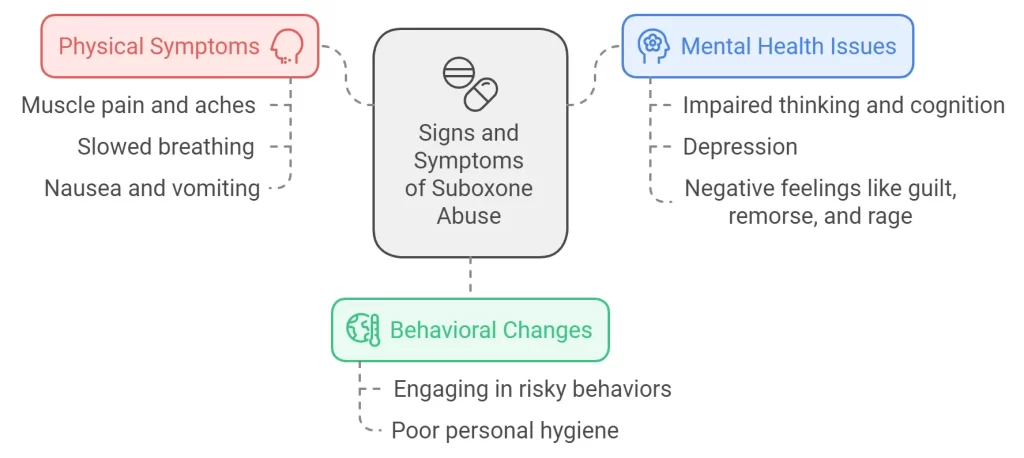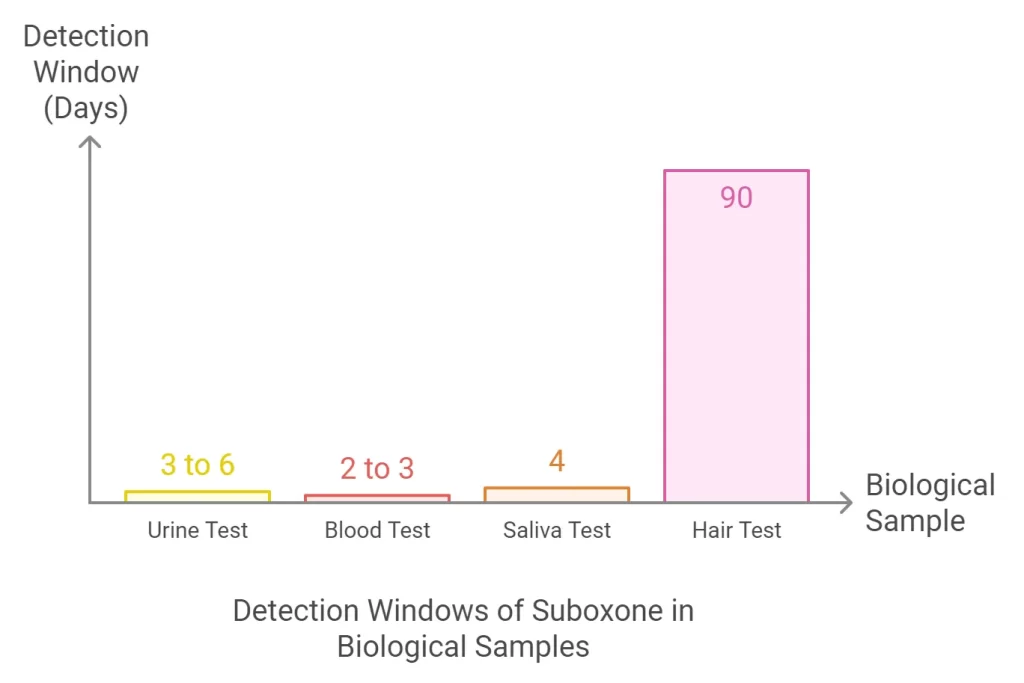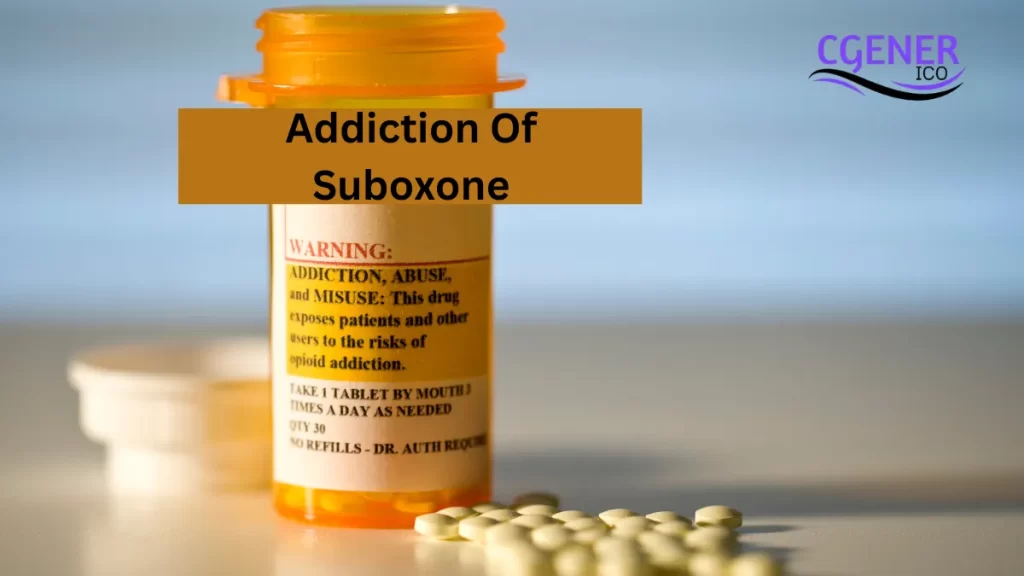Table of Contents
If you’re wondering how long does Suboxone stay in your system, you’re not alone. Many people want to know how long this medication lingers after they take it. Understanding how Suboxone works in your body, how it is processed, and the factors that affect its duration can help you plan better and make informed decisions. This guide will answer all your questions about Suboxone and how long it stays in your system.
What is Suboxone?

One medication commonly used to treat addiction to opioids is suboxone. It contains two main ingredients—buprenorphine and naloxone—that cooperate to lessen cravings and withdrawal symptoms. But like any medication, Suboxone doesn’t stay in your body forever. Let’s explore the factors that affect how long Suboxone stays in your system.
How Long Does Suboxone Stay in Your System?
On average, how long does Suboxone stay in your system depends on several factors. Typically, it can be detected in the body for about 2 to 5 days after your last dose. However, this can differ from person to person. For some, it may stay in the system for a shorter time, while for others, it may last longer.
The half-life of buprenorphine, one of Suboxone’s active ingredients, is about 24 to 42 hours. This means it takes that long for half of the substance to leave your system. Complete elimination can take a few days, but certain factors may extend or shorten this time.
Also Read: Discover the Truth: How Long Suboxone Stays in You
Factors Affecting the Duration of Suboxone’s Presence in Your System
Several factors can affect how long does Suboxone stay in your system. These include:
| Factor | Description |
|---|---|
| Your Metabolism | People with faster metabolisms process Suboxone more quickly, meaning it stays in their system for a shorter time. |
| Dosage | Suboxone may take longer to leave your system at higher doses than lower ones. |
| Frequency of Use | Suboxone can accumulate in your system with regular use, extending its duration. |
| Age and Health | Older adults or those with health issues may process Suboxone more slowly. |
| Hydration and Activity Levels | Staying hydrated and maintaining frequent exercise might hasten the excretion of Suboxone from your body. |
Signs and Symptoms for Suboxone Abuse,
Those misusing Suboxone might snort the pills or dissolve the strips in liquid for injection. The short-term effects of Suboxone misuse are similar to those of other opioid abuse, and they may include:
- Sedation and drowsiness
- Impaired thinking and cognition
- Muscle pain and aches
- Engaging in risky behaviors
- Depression
- Slowed breathing
- Nausea and vomiting
- Negative feelings like guilt, remorse, and rage
- Poor personal hygiene

Long-Term Consequences
Suboxone abuse over time can have a very negative effect on a person’s social, emotional, and physical health. For instance, by changing brain chemistry, the medication might result in unpredictable mood swings, which is why chronic users may act aggressively or experience depression.
Other long-term effects of abusing Suboxone include:
- Insomnia
- Respiratory Depression
- Brain Damage
- Difficulty Concentrating

Addiction Of Suboxone
Like other addictions, individuals with Suboxone dependency may show several signs, with the most common being:
- Continuing to use Suboxone after treatment has ended
- Feeling the need to take higher doses
- Intense cravings for the next dose
- Abandoning hobbies and interests due to Suboxone use
- Building a higher tolerance over time
- Experiencing withdrawal symptoms when not using Suboxone
How is Suboxone Metabolized in the Body?
Once you take Suboxone, your liver breaks it down into smaller components. The buprenorphine in Suboxone binds to the opioid receptors in your brain, helping to reduce cravings and withdrawal symptoms. Meanwhile, the naloxone component helps block the effects of opioids. Over time, these substances are processed and excreted through urine and feces.
Understanding how your body metabolizes Suboxone is essential to determining how long it stays in your system. The liver is a significant factor in the drug’s breakdown, so any issues with liver function can slow the process. Before starting or quitting any medication while taking Suboxone, it’s crucial to discuss any possible interactions with other drugs with your doctor.
Also Read: Your Wisdom Teeth: Keep or Remove? The Shocking Answer
How Long is Suboxone Detectable in Drug Tests?
You may be curious about how long Suboxone remains in your system if you’re concerned about drug tests. Depending on the test type, the response varies:
- Urine Test: Urine can contain suboxone for up to 3 to 6 days.
- Blood Test: It remains in the blood for about 2 to 3 days.
- Saliva Test: Saliva tests can detect Suboxone for up to 4 days.
- Hair Test: Suboxone can be found in hair follicles for up to 90 days, though this test is less common.

These timeframes can vary based on the factors mentioned earlier, but they give a general idea of what to expect.
Also Read: What Can You Eat After Tooth Extraction? Reveal Soft Options!
Can You Speed Up the Process of Eliminating Suboxone?
While you can’t completely control how long Suboxone stays in your system, there are a few things you can do to support your body in processing it:

| Tip | Description |
|---|---|
| Stay Hydrated | Drinking plenty of water helps your body flush out the medication faster. |
| Exercise Regularly | Physical activity can boost your metabolism, helping to process Suboxone more efficiently. |
| Eat a Healthy Diet | A balanced diet rich in nutrients supports liver function and overall health, aiding in the elimination process. |
Never stop using Suboxone without first talking to a specialist, and always remember to take it as directed by your doctor. Your healthcare provider will help and guide you during your Suboxone treatment to ensure you get the best care possible.





